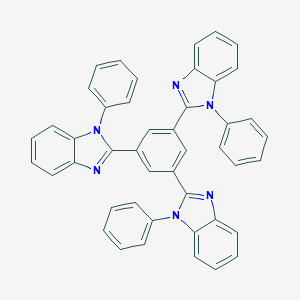Stem cell therapy uses the immune system to repair the heart
-
Last Update: 2020-12-29
-
Source: Internet
-
Author: User
Search more information of high quality chemicals, good prices and reliable suppliers, visit
www.echemi.com
have revealed how stem cell therapy improves heart function. Now, researchers have found in mice that these cells trigger an immune response that improves heart function. The scientists also discovered how to simulate the repair process with a chemical.
treatments for damaged hearts have shown some short-term effects in animals, but have had limited effect in humans. At first, scientists theoretically concluded that the benefits came from stem cells dividing into beating heart cells, or heart muscle cells, in mice. But subsequent studies, including one conducted by Jeffery Molkentin, a cardiovascular biology researcher at Cincinnati Children's Hospital Medical Center in Ohio, did not show that these cells did not convert.
Molkentin's team reported on two common stem cell therapies that stimulate an immune cell called macrophages to help repair connective tissue in damaged heart regions and improve their function.
scientists report the findings in the recently published journal Nature.
researchers point out that this repair mechanism can also be achieved by a chemical called zymosan, which is known to cause an immune response.
findings could have a major impact on the future of human stem cell therapy, a multi-billion dollar industry. Clinics in some countries already offer stem cell therapy for heart disease. Heart disease is the world's number one killer, killing about 17 million people each year. But there is little evidence that these stem cell therapies are effective.
many scientists no longer consider the cells used in such treatments to be real stem cells because they cannot renew themselves, but the term "stem cell therapy" is still widely used by companies and clinics that provide these treatments.
Molkentin team injected two cells used in these treatments into damaged areas of the mouse's heart that had been temporarily oxygen-deprived, simulating a heart attack.
one of the cells is a monocyte extracted from the bone marrow, one of the most commonly used cells in human clinical trials for stem cell therapy; The researchers found that mice that received cell injections had significantly better heart function than mice that received a placebo.
the team found that mice treated with stem cells did no better than mice treated with zymosan. In fact, zymosan lasts longer than stem cell therapy.
to further verify the effectiveness of the treatment came from an immune response, the team injected dead cells into mice and found that it could also improve heart function. The study "shows that we don't even need to inject live cells anymore," Molkentin said.
other experiments, the researchers inhibited macrophage activity in some mice. In this case, the repair process did not occur in mice treated with stem cells or in mice treated with zymosan.
Thomas Thum, a cardiologist at the Hannover School of Medicine in Germany, said the study is important because it clearly shows that inflammation caused by the immune system drives repair mechanisms.
Molkentin said the findings could also be applied to stem cell treatment for other diseases. He said any benefits from these cells could come from local and acute immune responses, rather than from the cell's own ability to regenerate.
Corey Lavine, a cardiologist and immunologist at Washington University in St. Louis, said the study could challenge researchers who treat stem cells for diseases from osteoarthritis to neurodegenerative diseases to focus on the role of immune cells in the body rather than the efficacy of the treatment itself.
some scientists say real stem cells are still valuable in the treatment of cardiovascular disease. Researchers at the University of Washington in Seattle have found that heart muscle cells from human embryonic stem cells can help heart failure monkeys reconstruct their heart muscle.
another reason that could divert attention from stem cell therapies is that they are expensive to produce and require time-consuming regulatory approval. "If there were ready-made chemicals, it would be a more viable treatment." Lavine said. (Source: China Science Journal Zhao Xixi)
related paper information:
This article is an English version of an article which is originally in the Chinese language on echemi.com and is provided for information purposes only.
This website makes no representation or warranty of any kind, either expressed or implied, as to the accuracy, completeness ownership or reliability of
the article or any translations thereof. If you have any concerns or complaints relating to the article, please send an email, providing a detailed
description of the concern or complaint, to
service@echemi.com. A staff member will contact you within 5 working days. Once verified, infringing content
will be removed immediately.







